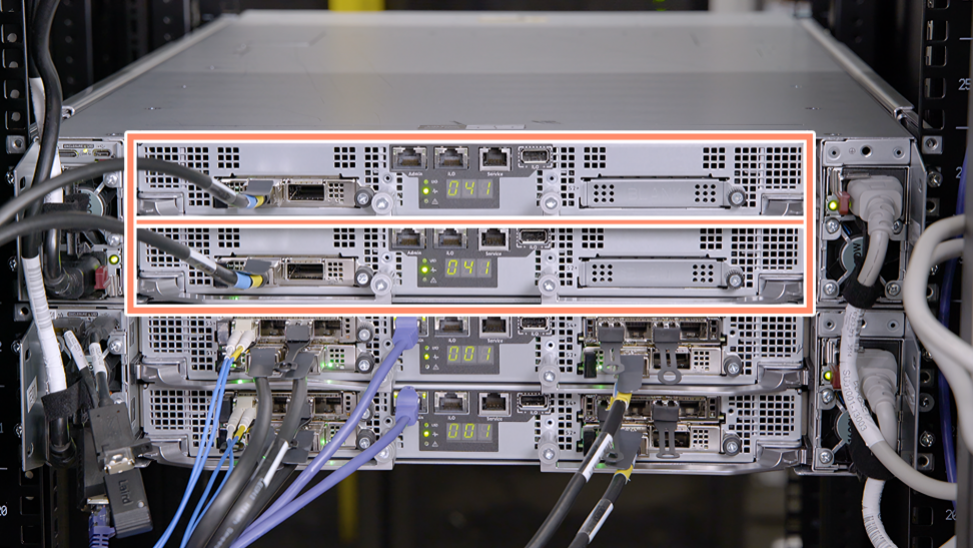Introduction
The multiprotocol storage market refers to the sector that enables storage systems to support multiple communication protocols, allowing for greater flexibility and scalability in data management. With the growing demand for more efficient and versatile storage solutions, multiprotocol storage systems are gaining traction across various industries.
These systems offer the ability to seamlessly handle different types of data traffic (block, file, and object storage) using a unified infrastructure, thus providing improved resource utilization and reduced complexity. The need for scalable and cost-effective storage solutions, combined with the growing data-driven landscape, is propelling the growth of the multiprotocol storage market. Enterprises are increasingly adopting multiprotocol storage systems to enhance operational efficiency and optimize IT infrastructure.
Categories
By Type:
Block Storage: This type of storage manages data in fixed-size blocks and is commonly used in enterprise environments. Multiprotocol block storage solutions allow for high performance and scalability by supporting multiple protocols like iSCSI and Fibre Channel.
File Storage: File-based storage systems are used for managing and storing data in files and directories. Multiprotocol file storage solutions enable organizations to support various file-sharing protocols like NFS, SMB, and others, facilitating cross-platform compatibility.
Object Storage: Object storage is designed to handle large amounts of unstructured data. Multiprotocol object storage systems offer the flexibility of supporting various storage protocols such as S3, OpenStack, and others, providing enhanced scalability and performance.
By Application:
Cloud Storage: Multiprotocol storage is highly beneficial for cloud providers, enabling the integration of multiple communication protocols to ensure seamless data exchange and efficient storage management across different platforms.
Data Centers: Data centers utilize multiprotocol storage systems to manage vast amounts of data efficiently and ensure compatibility between different systems and applications.
Enterprise IT: In corporate IT environments, multiprotocol storage solutions provide enhanced flexibility in managing a variety of workloads, ranging from high-performance applications to data archiving.
Media & Entertainment: The media and entertainment industry benefits from multiprotocol storage solutions by enabling the storage of high-resolution video and audio files while supporting multiple access protocols to enhance collaboration and content sharing.
Healthcare: In the healthcare sector, multiprotocol storage helps manage large volumes of sensitive data, including patient records and imaging files, while ensuring compatibility with various healthcare applications and systems.
Key Players in the Market
Several companies are playing a pivotal role in the growth of the multiprotocol storage market. These include: Dell Technologies: A leader in providing multiprotocol storage solutions, offering a wide range of storage systems that support various protocols to ensure versatility and performance.
Hewlett Packard Enterprise (HPE): Known for its scalable and flexible storage solutions, HPE offers multiprotocol storage systems that support a variety of data management protocols to cater to diverse business needs.
NetApp: A major player offering multiprotocol storage solutions focused on data management, providing high-performance solutions that support both cloud and on-premise infrastructures.
IBM: With its portfolio of storage solutions, IBM provides multiprotocol storage systems that are designed to handle large-scale data and support multiple protocols for improved storage efficiency.
Pure Storage: Specializing in flash storage solutions, Pure Storage offers multiprotocol systems designed for high-performance workloads and scalability across diverse environments.
Regional Analysis
The multiprotocol storage market is witnessing robust growth across different regions, driven by varying factors such as the adoption of digital transformation, demand for scalable storage solutions, and advancements in technology.
North America: North America holds a significant share of the multiprotocol storage market, owing to the strong presence of key players and the early adoption of advanced technologies. The growing demand for data storage solutions in industries like healthcare, finance, and media is fueling the market's growth in this region.
Europe: The European market for multiprotocol storage is expanding rapidly, with increasing demand from industries such as automotive, manufacturing, and energy. The adoption of cloud storage and the need for data management in regulatory environments are also contributing to market growth.
Asia-Pacific: Asia-Pacific is expected to witness the fastest growth in the multiprotocol storage market, driven by the expanding IT infrastructure, increasing digitalization, and the rise in data production. Countries like China, Japan, and India are major contributors to the market in this region.
Latin America: In Latin America, the multiprotocol storage market is experiencing growth due to the increasing adoption of cloud services and the need for more efficient data management solutions in sectors such as healthcare, retail, and financial services.
Middle East & Africa: The demand for multiprotocol storage in the Middle East and Africa is growing, supported by the region's ongoing infrastructure development and investments in digital transformation.
Multiprotocol Storage Market Outlook
The outlook for the multiprotocol storage market is promising, with continued growth expected over the coming years. As organizations move towards more integrated and flexible IT environments, the demand for multiprotocol storage solutions will continue to rise. The market will be further driven by technological advancements such as the integration of artificial intelligence (AI), machine learning (ML), and big data analytics into storage systems.
Furthermore, the growing adoption of hybrid cloud environments and the need for efficient and cost-effective data management will spur demand for multiprotocol storage solutions. Companies will focus on offering more scalable, secure, and high-performance solutions to meet the evolving needs of enterprises.









